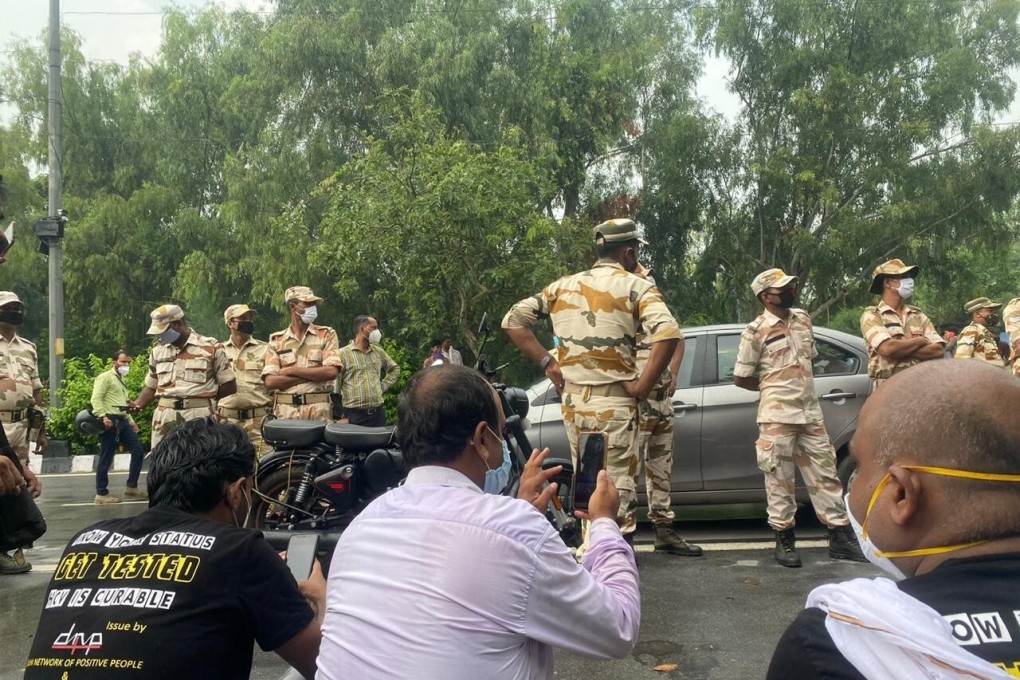Modi’s India wants to control hepatitis. Why are police beating protesters seeking treatment?
- The disease disproportionately affects HIV-positive people, like the protesters calling for the government’s free hepatitis treatment programme to resume
- While Covid-19 has diverted health resources, those in the sector say the programme has only been operational for some six months since February 2019

On July 28, World Hepatitis Day, the New Delhi health ministry asked Loon Gangte and members of the Delhi Network of Positive People (DNP+) – a group of people and advocates who live with HIV – to come to the capital’s Lok Nayak Jai Prakash Hospital.
Gangte, the president and a founding member of the DNP+, knew the group had not been invited for a government event to mark the occasion – not once in his 20 years of activism as a HIV-positive person had he been asked to attend one. Rather, he had been told the central government’s free hepatitis treatment programme was set to resume. Late that afternoon, however, when the clinic remained closed and the 30-odd DNP+ members were told to return home, Gangte made up his mind. It was time to take action.
On July 29, Gangte and the DNP+ members returned to the hospital with some tarpaulin for a sit-in. They planned to protest there, day and night in the capital’s muggy heat, until the clinic reopened. They followed Covid-19 regulations, including wearing masks and sitting at a distance from each other.
A group of paramilitary personnel showed up in front of the protesters one afternoon, but left without incident. Then, on August 1, the Delhi police arrived. A video shared by the group on Facebook showed the police pulling some protesters by their hair, and pushing others to the ground, as they detained four DNP+ members. When their colleagues tried to shield those who had fallen down, the police roughly shook them off.
“The Delhi police are experts at beating without leaving marks of violence,” said Gangte, who was freed late that evening. “They punched me on my ribs. Outwardly, you cannot see anything, but the pain is so intense that I could not get out of bed all day.”